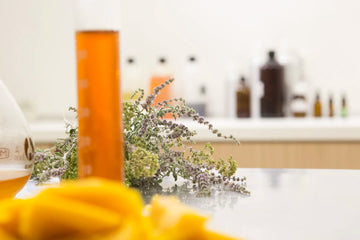In the realm of skin care, the buzz around organic products has grown tremendously in recent years. With a plethora of labels boasted as “organic” and "natural,” one may feel overwhelmed when trying to distinguish between high-quality organic skin care items and those that simply use the term as a marketing strategy. This blog will unveil the secrets of reading labels for organic skin care products, giving you the insight you need to make informed decisions for healthier skin.
Understanding Organic Certifications
Before diving into the specifics of reading labels, it’s essential to understand what organic means in the context of skin care products. The term "organic" refers to the way agricultural products are grown and processed. When shopping for organic skin care, look for certifications from recognized bodies like USDA (United States Department of Agriculture). These certifications ensure that the product is made from at least 95% organic ingredients, which can be beneficial for your skin and the environment.
The Importance of Ingredient Lists
The ingredient list provides valuable information about what you’re applying to your skin. It’s generally advisable to opt for products where the primary ingredients are recognizable and easily pronounced. Here’s what to look for:
- Order of Ingredients: Ingredients are listed in descending order by volume. If a product claims to be a “tallow face cream,” ensure that tallow is one of the first ingredients listed.
- Natural Components: Look for natural ingredients such as organic tallow moisturizer, plant oils, and botanical extracts that are beneficial for the skin.
- Avoid Harmful Additives: Steer clear of products that contain synthetic fragrances, parabens, and sulfates. These chemicals can irritate the skin and counteract the benefits of organic products.
Decoding Common Label Terminology
Labels are often filled with technical terms and jargon that can be confusing. Here are some terms to keep an eye out for:
Natural vs. Organic
While "natural" sounds appealing, it isn't a regulated term. Therefore, a product can claim to be natural while still containing synthetic ingredients. Organic products, however, must meet specific criteria and certifications, ensuring a higher standard of quality. Look for phrases like "100% Organic" or "Made with Organic Ingredients" on your labels.
Understanding 'Face Cream for Dry Skin'
Many products are specifically formulated to address certain skin issues, such as dry skin. When looking for a Face Cream for Dry Skin, check ingredients known for their hydrating properties, like hyaluronic acid or glycerin. Additionally, consider the texture; creams that are thicker usually provide more hydration.
The Role of Animal-Derived Ingredients
Animal-derived ingredients, such as tallow, are becoming increasingly popular within the organic skin care community. Tallow, rendered from grass-fed beef, is loaded with nutrients beneficial for the skin. Here’s why you should consider tallow-based products:
- Rich in Nutrients: Tallow contains essential fatty acids and vitamins A, D, and K, which provide nourishment and hydration.
- Compatible with Skin: The fatty acids found in tallow are similar to those produced naturally by our skin, making it an excellent choice for moisturizing.
- Grass-Fed Benefits: When looking for tallow products, opt for those derived from grass-fed animals, as they are richer in nutrients. Grass-fed tallow skincare is often more potent and effective.
Choosing the Best Tallow Face Cream
Finding the best tallow face cream involves evaluating a product's source and purity. Look for these factors:
- Grass-Fed Sourcing: Ensure that the tallow used is from grass-fed animals. This ensures that your moisturizer is not only organic but also free from antibiotics and hormones.
- Ingredient Transparency: The best tallow face creams will provide full disclosure of their ingredients, allowing you to feel secure about what you are applying to your skin.
- Customer Reviews: Before making transactions, check reviews to gauge others' experiences with the product. Real feedback can provide insight into effectiveness and any potential skin sensitivities.
Hurdles in Organic Skin Care
Despite the benefits of organic skincare products, there are some hurdles to be aware of:
Variable Regulations
The organic label can be misleading due to varying regulations across different countries and regions. Always research the supplier to confirm their organic practices.
Potential Irritants
Even organic ingredients can sometimes cause skin irritation. Always do a patch test before using a new skincare product extensively.
Ingredients to Embrace and Avoid
Understanding which ingredients are beneficial and which ones to avoid can significantly impact your skin health. Here are some examples:
Ingredients to Embrace
- Natural Oils: Look for natural oils such as jojoba or coconut oil that can provide hydration and nourishment.
- Essential Oils: These can add fragrances without synthetic chemicals and have therapeutic benefits but should be used cautiously.
- Herbal Extracts: Ingredients such as chamomile or calendula have soothing properties and can help to calm irritation.
Ingredients to Avoid
- Sulfates: These harsh detergents can strip your skin of moisture.
- Parabens: Often used as preservatives, have been linked to hormone disruption.
- Fragrance: This term can encompass a cocktail of undisclosed ingredients, potentially leading to irritation.
Deciding on the Right Organic Skin Care Routine
Now that you understand how to read labels and know which ingredients to embrace and avoid, it’s time to outline an appropriate organic skincare routine tailored to your skin needs. Here’s a simple guide:
Morning Routine
- Cleanser: Start with a gentle cleanser that won’t strip your skin of its natural oils.
- Moisturizer: Opt for a rich natural tallow face cream suitable for your skin type, especially if you’re struggling with dry skin.
- SPF: Finish with a natural sunscreen to protect your skin from UV damage.
Evening Routine
- Makeup Remover: Use a natural oil or gentle wipe to remove makeup effectively.
- Serum: Consider incorporating a serum packed with beneficial ingredients like vitamin C or hyaluronic acid.
- Night Cream: Use a nourishing cream overnight to allow your skin to repair itself while you sleep.
Elevate Your Skin Care Game!
Reading labels for organic skin care products doesn’t have to be daunting. With the knowledge gained from this article, you are now equipped to navigate products with confidence, ensuring that you select high-quality and effective items. Embrace your organic skin care journey, fuel your skin with the best tallow face cream, and celebrate the natural beauty within you!



